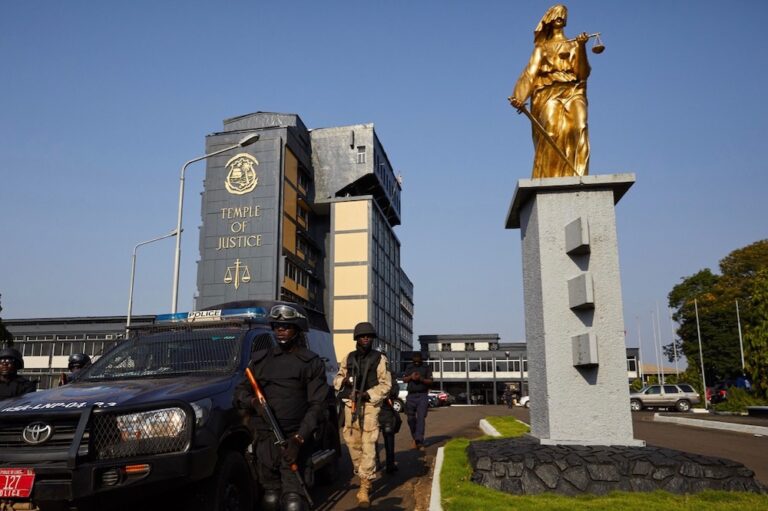The Center for Media Studies and Peace Building has filed a writ of mandamus with the Supreme Court of Liberia, after the organization was denied access to asset declaration forms from the national Anti Corruption Commission.
The Center for Media Studies and Peace Building (CEMESP) has filed a writ of mandamus with the Supreme Court of Liberia to compel the Independent Information Commission to conduct a hearing on its complaint against the Liberia Anti Corruption Commission (LACC) for denying the release of asset declaration information.
A release quotes CEMESP Executive Director Malcolm Joseph as saying, “CEMESP, in November 2012, filed a request [with] the LACC to get asset declaration forms [from] all cabinet minister and their deputies, in accordance with section 3.2 of the Freedom of Information Act of 2010.”
Things reached this level after a string of prior engagements that CEMESP had with the LACC, which yielded no positive results. On November 21, 2012, the chairperson of the LACC responded and agreed to make the documents available, if CEMESP underwrote the cost of duplicating them. CEMESP agreed to this and requested a number of pages of the documents in question.
But then, on December 19, 2012, the chairperson of the LACC informed CEMESP that the commission was revoking its previous decision, on the grounds that the documents are confidential.
Based on this response from the highest authority at the LACC, CEMESP – on January 7, 2013 – requested the Independent Information Commissioner to intervene in the issue and compel the LACC to make the requested information available.
Since then, however, the Independent Information Commission has failed to take any action, or even acknowledge receipt of CEMESP’s complaint.
In the writ of mandamus filed on April 29, 2013 – by lawyers representing CEMESP – the petitioner requested that the Supreme Court compel the independent Information Commissioner to seize CEMESP’s complaint within one week after the court’s ruling in the writ of mandamus.
Section 3.2 of the Freedom of Information Act of 2010 states that, “Every person, irrespective of their nationality or residence, may request, receive, reproduce and retain any information held by (1) a public authority or (2) [a] private entity that receives public funds or engage in public functions or provision of public service; provided that in respect of private entities, the information shall relate to the public funds, benefit, functions or service.”
Under the freedom of information law, an appeal from an internal review lies with the Independent Information Commissioner.
Liberia is the first West African country to successfully pass a freedom of information (FOI) law. This is the first freedom of information matter to reach the court since the Liberian FOI law came into effect.


